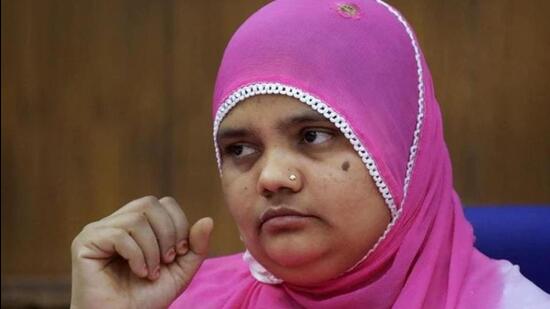Bilkis Bano case: Gujarat govt refuses to share file notings of remission panel
As part of ‘Azadi Ka Amrut Mahotsav’, the government decided to free some prisoners in three phases in August 2022, January 2023, and August 2023, said Pankti Jog, an RTI activist. In a response to the RTI, the state home department supplied government resolutions and documents pertaining to the formation of remission committees etc
The Gujarat government in response to a right to information (RTI) query refused to reveal the file notings of the recommendations by the remission committee for the premature release of 11 prisoners facing life in the 2002 Bilkis Bano gang rape case.

Pankti Jog, an Ahmedabad-based RTI activist sought details from the state of the early release of the convicts serving sentences in Gujarat jails on four counts– the terms of reference for the remission committees in the last five years, minutes of the meetings of these committees, names of prisoners recommended for release along with reasons, and file noting along with criteria for selection of members of the remission committee for the release of jail inmates on the occasion of the 75th anniversary of Independence.
Also Read: SC dismisses Bilkis Bano’s review plea against early release of 11 rapists
As part of ‘Azadi Ka Amrut Mahotsav’, the government decided to free some prisoners in three phases in August 2022, January 2023, and August 2023, said Pankti Jog, an RTI activist.
In a response to the RTI, the state home department supplied government resolutions and documents pertaining to the formation of remission committees etc.
According to Jog, “RTI filed on August 20, 2022, which was answered partially in November 2022, revealed that the notification date 13/5/2022 made a separate committee consisting of additional chief secretary (home) plus secretary, home department as member and director general of police (DGP) and inspector general (IG) jail as member secretary. Notification talks that the committee should check for the fulfilment of criteria for release and should make a recommendation proposal to the governor of the state for consideration.”
Under Article 161 of the constitution, the governor has powers to grant pardons and to suspend, remit or commute sentences in certain cases, she added.
In its reply, the state said the decision was taken according to the May 13, 2022 government resolution. The state home department said the formation of the remission panel and the process of remission were done on the guidelines issued by the centre under the Azadi ka Amrit Mahotsav scheme.
Also Read:Supreme Court wraps up 6,844 cases since Chandrachud took over as CJI
The first set of prisoners released on 15 August 2022 created controversy as they were facing life sentences in the Bilkis Bano gang rape case in 2002, post-Godhra communal riots.
The 11 men were released after one of them approached the Supreme Court in April 2022 seeking remission, arguing that they spent over 14 years in prison in the case.
The RTI reply also said that the criteria for releasing the prisoners by giving remission in the last five years is as per the “policy regarding state remission and premature release of prisoners” formed on 23/1/2014.
Jog said, “The RTI reply also talked about a GR dated 13/5/2022 for the formation of a committee for the release of prisoners on the occasion of Azadi ka Amrut Mahotsav to consider the names for the release using government of India guidelines. These guidelines prohibit the pre-mature release of rape accused.”
She said that the GR of 13/5/2022 is silent about the role of the jail advisory committee in cross-checking the names.
Jog said that the department refused to give file notings which would have revealed the process of selection of names and cross-checking with the criterion.
“This becomes a matter of concern, as two more phases of the release are going to come in January and August 2023. As per the timetable in the letter dated 13/5/2022, the state government must have already sent the names of the prisoners,” she added.
The Supreme Court has dismissed a review petition filed by Bilkis Yakub Rasool, the survivor of the 2002 Gujarat riots who had challenged a May order of the apex court allowing the state government to consider the remission plea of the 11 convicts, as per a 1992 policy which did not bar early release in rape and murder cases.





